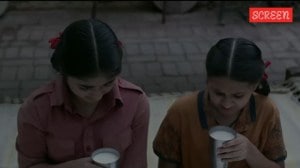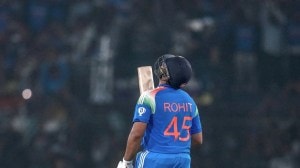Iffat Nawaz’s Shurjo’s Clan is a debut novel of startling promise
The Bangladeshi writer charts the aftermath of life-altering wars and its scars on a people in the book
 Shurjo’s Clan by Iffat Nawaz; Vintage Books; 288 pages; Rs 599 (Source: Amazon.in)
Shurjo’s Clan by Iffat Nawaz; Vintage Books; 288 pages; Rs 599 (Source: Amazon.in)Shurjo’s Clan, Iffat Nawaz’s debut novel, is a captivating book of magical story-telling about Bangladesh’s freedom movement. War, Partition, martyrs and their families, the struggle for identity, displaced idealism, the blurring of the ordinary and the extraordinary, characterised by intense emotions of love, loss, and, above all, a pull towards one’s roots and motherland, come together in the book.
The story is about a family in independent Bangladesh, who lives in the memories of losses that the Bengal Partition of 1947 and the Bangladesh Liberation War of 1971 brought. This may sound like a cliched literary idea, but Nawaz brings a freshness to it through the element of magic realism which she uses to merge the worlds of the alive and the dead, referred to as the “known” and the “unknown” in the novel. Shurjomukhi, aka Shurjo, as a little girl has seen two worlds, the known one during the day which is mundane, and the unknown one during the nights, where her martyred uncles and her long-dead maternal grandmother come to visit them.
Awaiting the nights is a family preoccupation — Shurjo’s grandparents get to meet their dead sons, Shurjo’s father his brothers, and Shurjo’s mother sees her mother. Their conversations around the dinner table give mixed feelings of joy and pain, loss and gain that emanates through the half-told tales of the Liberation War and anecdotal stories of the family. The personalities of the people of these two worlds are beautifully presented through their lively, innocent and fun-filled interactions with Shurjo. However, there is an underlying tension and fear of exposing Shurjo to the trauma of the 1971 war, its nihilism, the profundity of grief, and the fear of the unknown. Shurjo stands out in school for being born in a family of freedom fightersand, at the same time, a grandchild to those considered ‘outsiders’ in Bangladesh as they migrated from Calcutta during the Partition. She also gets to know about some of the dark secrets of her family as she spends her solitary afternoons with her paternal grandmother who shares stories from the past.
The novel takes a sharp turn with an unexpected incident in the unknown world that leads to Shurjo and her parents emigrating to the USA. The second part of the novel is about the adjustments and acceptance of a new reality, where Shurjo and her mother eventually settle well, but her father remains torn between longing for the unknown world and the guilt and self-doubt over the decision to leave his own country. Shurjo makes the most of a fresh start, becoming a thoughtful, sensitive, independent adult. After many years of disconnect with Bangladesh, she gets a chance to return to her homeland — and her home — on a job assignment, leading to a reconciliation of issues that have troubled the family.
Nawaz has beautifully entwined the abstractness of the unknown world with the stark reality of the known world. She does not make any attempt to explain the return of the dead and leaves it at what it is, which makes her storytelling intriguing and surreal. The juxtaposition of anecdotal experiences of the Liberation War, the deaths and sacrifices, the fear and anxiety, and the sensitivities of the generations born in a free nation are well placed, giving the reader the feel of a personal account that many can relate with. Somewhere, it retains a tone of melancholy that brings to mind Amitav Ghosh’s The Shadow Lines (1988), which also recounts a deeply intimate and personal journey in a similar backdrop of war, Partition, and riots.
Shurjo’s clan, despite being centered around one family, successfully transcends into emotions and aspirations of the freedom fighters who exist in a realm between the living and the liberated, seemingly having unfinished work. Reconciliation happens not only for Shurjo’s family but also for the reader, as the story ends with the notion of the essentiality of a happy, loving, and meaningful life for ensuring a purposeful after-life. It is an engaging book with a fresh perspective of war and displaced identities, and provides the readers space to think, and interpret it in their own ways.
(Madhura Dutta is a freelance writer and a development sector professional)



- 01
- 02
- 03
- 04
- 05




























